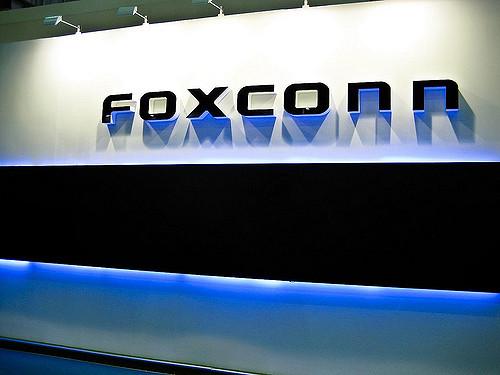Ever since Foxconn Technology group announced plans to open a plant in Wisconsin, potential economic results have both been praised and raised concerns among government officials.
University of Wisconsin economics professor Noah Williams released a report which finds Foxconn has the potential to generate a total of 32,000 to 39,000 direct and indirect jobs, and return $3.90 for every $1 of state taxes.
“Foxconn would be introducing a new, high technology industry to the state, and indeed to the country,” Williams said in an email to The Badger Herald. “This could lead to new startups and an increase in productivity, output, employment, incomes and property values far beyond its direct impact.”
In a statement, Gov. Scott Walker said Williams’ findings are “big” and said he is ready for “Wisconn Valley.”
When House Speaker Paul Ryan held a town hall in Racine, he called the deal a “game changer” for the state of Wisconsin, having the potential to bring in $10 billion in investment for the state.
“Foxconn is a transformational opportunity for Wisconsin — one that will have a ripple effect reaching every corner of our state,” Walker said in the statement.
Williams said Foxconn has the potential to turn southeast Wisconsin into a “high technology hub.”
Concerns, however, have been raise.
One issue critics have found is how Illinois residents might benefit from the Wisconsin jobs without having to pay taxes. Williams said there would be an increase in commuters from Illinois, but that workers would pay state income taxes in Wisconsin.
“There are more Wisconsin residents, particularly in the southeast, that commute to Illinois than the reverse,” Williams said.
But, Williams added there is also “significant uncertainty” regarding the overall impact.
“Past experience with large plant openings and with foreign direct investment in the U.S. suggests that these gains may be large,” Williams said. “However, there are also many cases where new plants have not fulfilled expectations.”
For state Sen. Lena Taylor, D-Milwaukee, the “large costs” both financially and environmentally raise questions, since Wisconsin residents will pay for this negotiated deal for a long time to come.
No other state has made a larger giveaway of their future to a foreign company, Taylor said.
“These costs will take us into 2043 — best case scenario,” Taylor said. “And that’s if everything goes right and nothing goes wrong … but I don’t know anything to not have glitches.”
A more likely scenario, if there are only 3,000 jobs provided, is that these costs will take Wisconsin residents into 2058, Taylor said.
The Legislative Fiscal Bureau suggested it may take 25 years or more for the state to recover the revenue, Williams said.
Taylor said the choices Wisconsinites are making today will impact how transportation, education and higher education are funded.
“I don’t think we have enough information on the table for people to fully understand what they’re dealing with,” Taylor said. “We’re moving it like it is a fast race, instead of a race that should be about thinking thoroughly, for not just us but for generations to come.”













